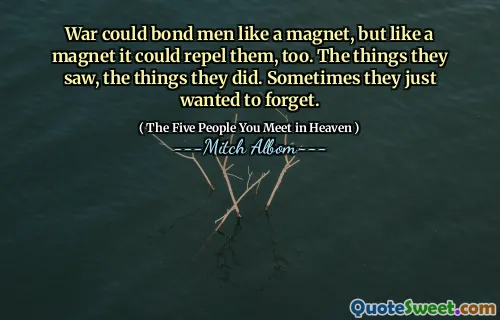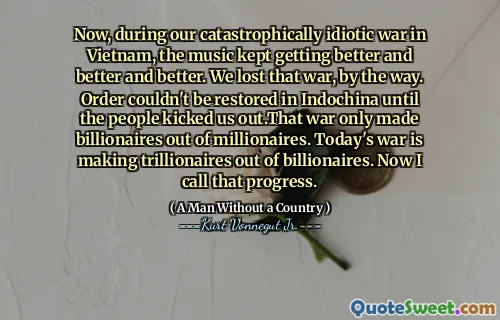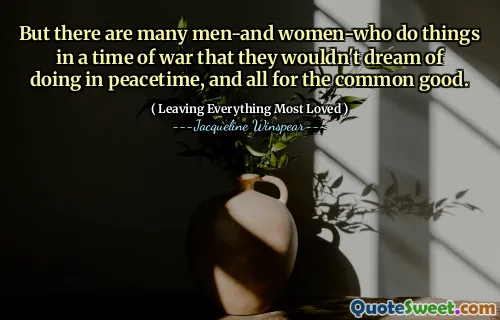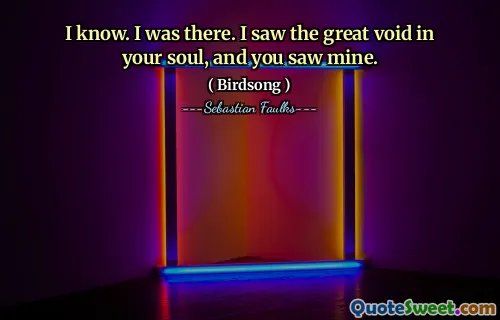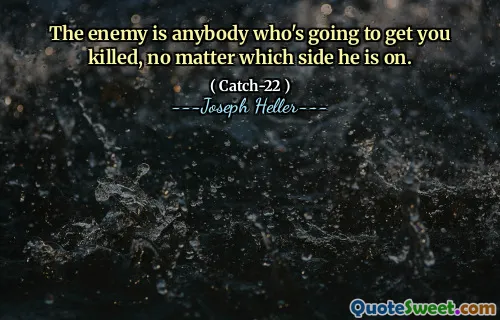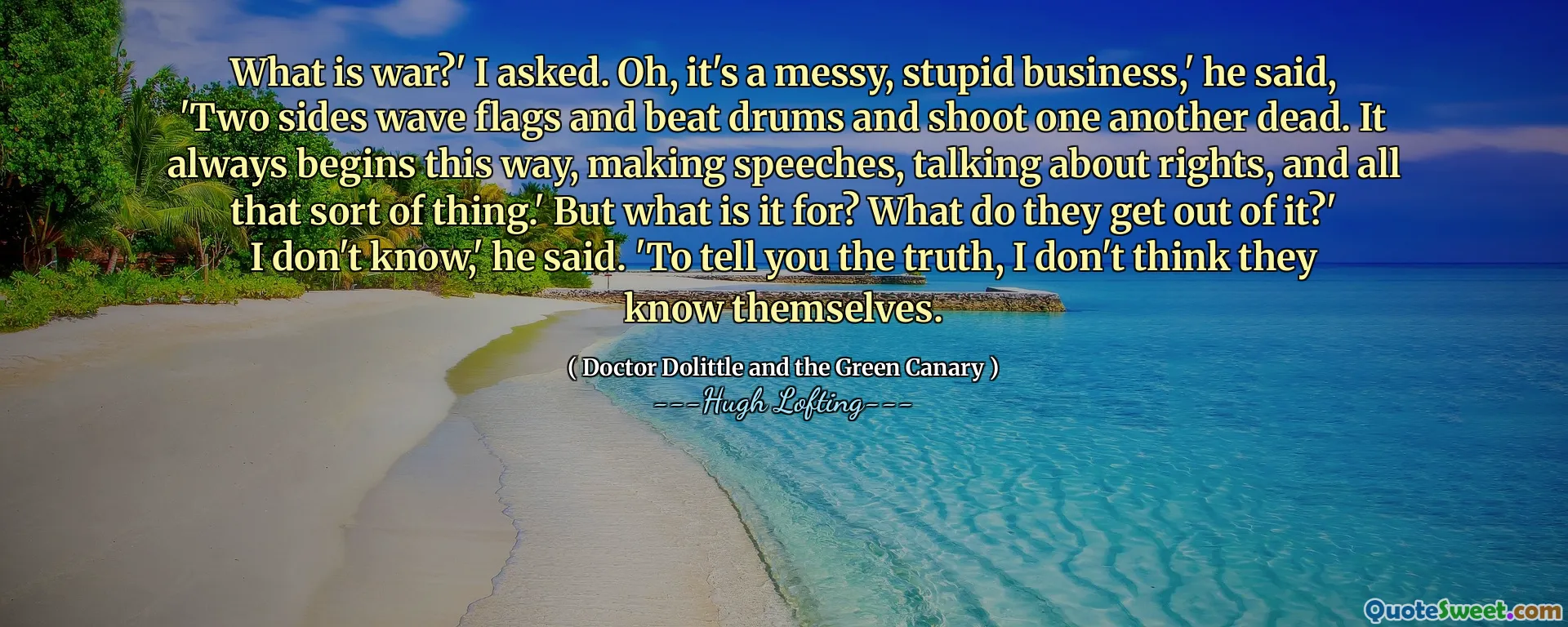
What is war?' I asked. Oh, it's a messy, stupid business,' he said, 'Two sides wave flags and beat drums and shoot one another dead. It always begins this way, making speeches, talking about rights, and all that sort of thing.' But what is it for? What do they get out of it?' I don't know,' he said. 'To tell you the truth, I don't think they know themselves.
**The quote vividly dissects the nature of war, exposing its chaotic and often senseless origins. At its core, war is depicted as a 'messy, stupid business,' highlighting the irrationality that underpins many conflicts. The imagery of sides waving flags, beating drums, and shooting each other emphasizes the superficial and ritualistic aspects of warfare—symbols of nationalism and tradition that can ignite violence without true understanding or just cause. The conversation questions the purpose behind such violence, asking what the combatants and their leaders hope to gain. The honesty of the speaker's answer—admitting ignorance about the true motives—points to a disconcerting truth: often, those who engage in or orchestrate war may not fully grasp or even know why the conflict persists. This reflects a broader commentary on the often futile and self-perpetuating nature of war, where the real consequences—destruction, loss of life, societal fractures—become collateral damage in pursuits that lack clarity or genuine purpose. It prompts readers to think critically about the reasons given for war and whether they are justifiable, or merely an excuse for violence rooted in greed, power, or irrational pride. Ultimately, the quote serves as a sobering reminder of the absurdity of conflict, urging us to seek understanding, dialogue, and peace instead of resorting to destructive violence motivated by vague or incomprehensible motives. In doing so, it stirs reflection on the importance of questioning authority and the narratives that justify war, urging us to be vigilant about the true drivers of conflict in our own societies."

